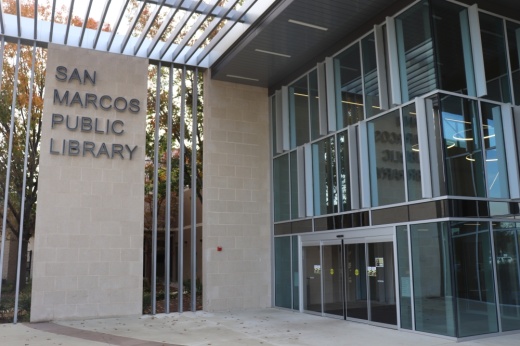“Mano Amiga is extremely excited to promote and uplift this initiative that the library is launching because we believe it will be greatly beneficial to a multitude of community members,” Mano Amiga campaign fellow Sam Benavides said.
She added this will benefit communities impacted by criminalization and homelessness, including those who have been released from being incarcerated.
“A lot of them don’t have access to a proper form of identification, and this can make it difficult to obtain jobs that aren’t day labor,” Benavides said. “And a lot of these jobs can be dangerous and don’t compensate them enough for the work they put in.”
Not only will having access to a legitimate form of identification help eliminate that issue, but it is free and much faster than obtaining an ID from the Texas Department of Public Safety, she said.
Mano Amiga immigration coordinator Nataly Avendano spoke in favor of this initiative because it will help the immigrant community.
“It can be very difficult for the immigrant community to have access to a valid identification, which makes it even more difficult for them to have access to resources such as housing, utilities or even being able to pick up their kids from school,” Avendano said.
Durance spoke in favor of this initiative for those experiencing homelessness and said one of the issues the HOME Center sees is a lack of proper IDs.
“The fact that our library is now going to be making that available is going to be life altering for some of these individuals because they cannot stay in a motel room without an ID,” Durance said. “Even if they were able to save up the money to rent a room during an emergency or crisis, they would not have access due to the fact that they do not have an ID.”
She added that during the winter storm in February, the HOME Center helped pay for 99 motel rooms for individuals experiencing homelessness, but the center had to vouch for many who did not have IDs.
Residents must make an appointment with the library to apply and receive their enhanced ID cards within minutes. Applicants must provide a photo ID and a verification of their mailing and physical address. If applicants do not have access to either of those, there are over 25 alternative forms of documentation that can be used to receive an ID card, such as a student ID card, an inmate or shelter ID card, an ID from another state and more.





